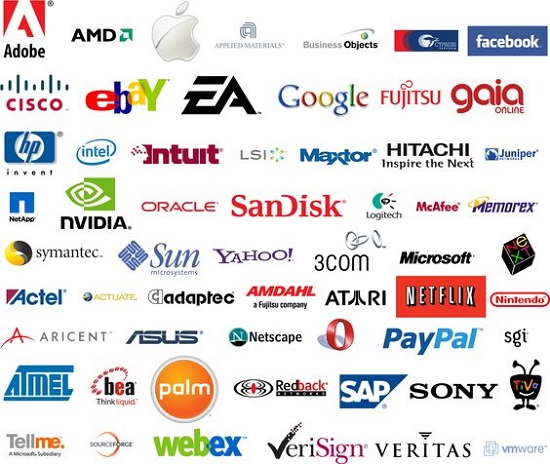Despite our repeated reminders that the multiple woes—especially housing prices, traffic gridlock, and long commutes—of tech companies’ building large staffs in the San Francisco/San Jose area, nearly all of these mainly-software organizations continue to ignore the logic of setting up new operations in other cities in the U.S. And these other cities would love to have them locate their operations in their respective cities. This phenomenon, coupled with the September 13 opening of the vaunted Cornell Tech in New York City, is so noticeable that Bloomberg Businessweek went to considerable effort to prepare a pictogram for its September 11 issue that includes about 300 metro areas (but they do not appear to be the 300 most populous cities in the U.S.) is so detailed that they couldn’t include it in their online version and an article apparently so basic that they couldn’t include it in their print version. On the horizontal (“good stuff”)axis it combined nine positive ways: rates of college education, science and engineering majors, top universities, headquarters of big tech companies, venture capital investment, share of jobs in computer-systems design and related services, broadband subscription rates, independent coffee shops (huh??),and commutes by bike/public transportation/on foot. On the vertical (“bad stuff”) axis it combined three negative ways: high home prices, lots of income inequality, and long drive times. It weighted these 12 ways equally (what else could they do?) and plotted a scattergram with city names as labels. In the upper lefthand corner (high on both good stuff and bad stuff) is the San Francisco/San Jose area (Silicon Valley), which is in the biggest “quadrant” (the quadrants are quite unequal in area) called “Both the good and the bad of Silicon Valley”. The upper righthand quadrant is “Unequal and expensive, but not techie”, the lower lefthand quadrant is “Tech without the downsides”, and the lower righthand quadrant is “ Least like the Bay Area”. The authors highlighted Boston (not surprisingly, due to its many good universities and Route 128 tech companies), Boulder, Co (high percent of households with broadband access), and Ithaca, NY (low housing cost). Ithaca??!! Well, it’s home of Cornell University which, together with partner Israel’s Technion, created Cornell Tech, and it’s the most techie of the Ivy League. (It’s also our home town, with nice summers, but awful winters … especially compared with Silicon Valley.)
Tag Archives: LinkedIn
Sports More Important Than Technology Business in Silicon Valley Newspaper
The Mercury News’ demoting its business coverage to the back pages of the Sports Section was a populist victory even before Trump’s election. Or does this situation simply derive from the biblical truism “no prophet is accepted in his hometown”? In any case, the rest of the world—including major newspapers—seems more entranced with the goings-on in San Jose and surrounding cities. The New York Times and Wall Street Journal have permanent staff in Silicon Valley who seem to turn out significantly more column-inches of reporting and opinion about technological accomplishments in this geography than do the valiant-but-outnumbered technology staffers at the Mercury News.
This demotion came a few months after the April 2016 renaming of the San Jose Mercury News to to reflect its merger with the San Mateo Times. But the spirit of San Jose, which some years ago was dubbed “the USA’s largest truck stop”, lives on in the focus of its printed media. (Apparently a number of other cities in the U.S. claim that theirs is the largest, and a number of locations have subtitled themselves “Silicon XXXX”, like “Silicon Prairie” which can refer to Dallas-Fort Worth or the Chicago area or a multi-state area of the upper Midwest.) We are a bit baffled because the advertisements in the Mercury News don’t seem to be for products and services that the typical sports fan would buy.
Can Thoughtful U.S.-Wide Economic Planning Enable Orderly Growth?
Skyrocketing house prices and apartment rents, long and slow commutes, overcrowded schools, etc. not only dramatically diminish peoples’ quality of life but can choke off economic growth in places like Silicon Valley. (And Silicon Valley is not unique; e.g., Boston has a similar problem.) What can be done about it? We need to think bigger, in terms of geography. Every sizable city or cluster of nearby cities has some form of LOCAL regional economic development authority. But those authorities are sub-optimizing. We believe that what is needed is a nationwide advisory council AND a change in thinking by large companies. Germany is a good example of what is possible. We can understand to some extent the economies of scale of microchip manufacturers for examples, but it especially baffles us that technology giants like Facebook, Google, Oracle, eBay, and LinkedIn, which are principally software companies, insist on building mega-campuses in Silicon Valley. Seems to us that—using their own technology and realizing that software can be written anyplace—they could do large portions in regional centers. Even Apple, who farms out much of their manufacturing to Chinese companies like Foxconn, very likely would benefit if their employees spent more time working and less time commuting to their new giant building (which will almost certainly exacerbate the already horrendous traffic jams in that area).
There are lots of other attractive cities in western states with a critical mass of local services and attractions that would welcome an influx of well-paid, well-educated employees: for example, Austin, TX; Denver, CO; Seattle, WA; Portland, OR, Los Angeles, CA; San Diego, CA; Sacramento, CA; and Phoenix, AZ. Similarly for eastern states.
NSA and Information Industry Giants: On Speaking Terms Again
You have to admire the chutzpah of Facebook’s Mark Zuckerberg in complaining about the NSA’s invading Facebook’s or the populace’s privacy. It seems that Facebook, Google+, LinkedIn, and every other social networking site is doing that in spades, and has been doing it for years. So how did he get off venting to President Obama about the abuse by the NSA? And didn’t the NSA hack into Facebook so shouldn’t he be saving some of his anger for his own IT staff who let this happen? (The CIO and CEO of Target lost their jobs over such breaches.) Anyway, during July both sides have been getting friendlier, according to an article and a video by Bloomberg Businessweek.
Pushy Tips from LinkedIn and Other Networks
You’d think that a PR executive would applaud all the exposure that LinkedIn and their ilk can get with their constant barrage of emails wanting members to do this or that or reminding you of people—no doubt some of whom you would like to forget–that you might want to communicate with. As a PR professional Allan Ripp can be proud of the column-inches the Wall Street Journal devoted to the case he makes that “less is more” when it comes to being an active
networker. He can be thankful if it is only LinkedIn that is constantly bombarding him with mostly-unwanted missives, because many of the rest of us are getting at least weekly reminders—some of them totally unrelated to anything we have ever expressed interest in to anybody—from EVERY network we are part of. Why is this? Simply put, these networks make more money if they have more members and more transactions, regardless of how much value they add to their members. People initially sign up for these networks because their friends or relatives have done so, and it seems like it might be useful for keeping current. Unfortunately, many find that the the annoyance outweighs the benefits. In fact, it is even worse, because the networks go through all of the files on your computer to find email addresses of your contacts, and start to bombard you about them—or them about you–too. The antidote: don’t sign up for any of these networks that you have not investigated in enough detail to prove to yourself that you are getting at least as good as you are giving, and discontinue any you already have that are more annoying than valuable.




